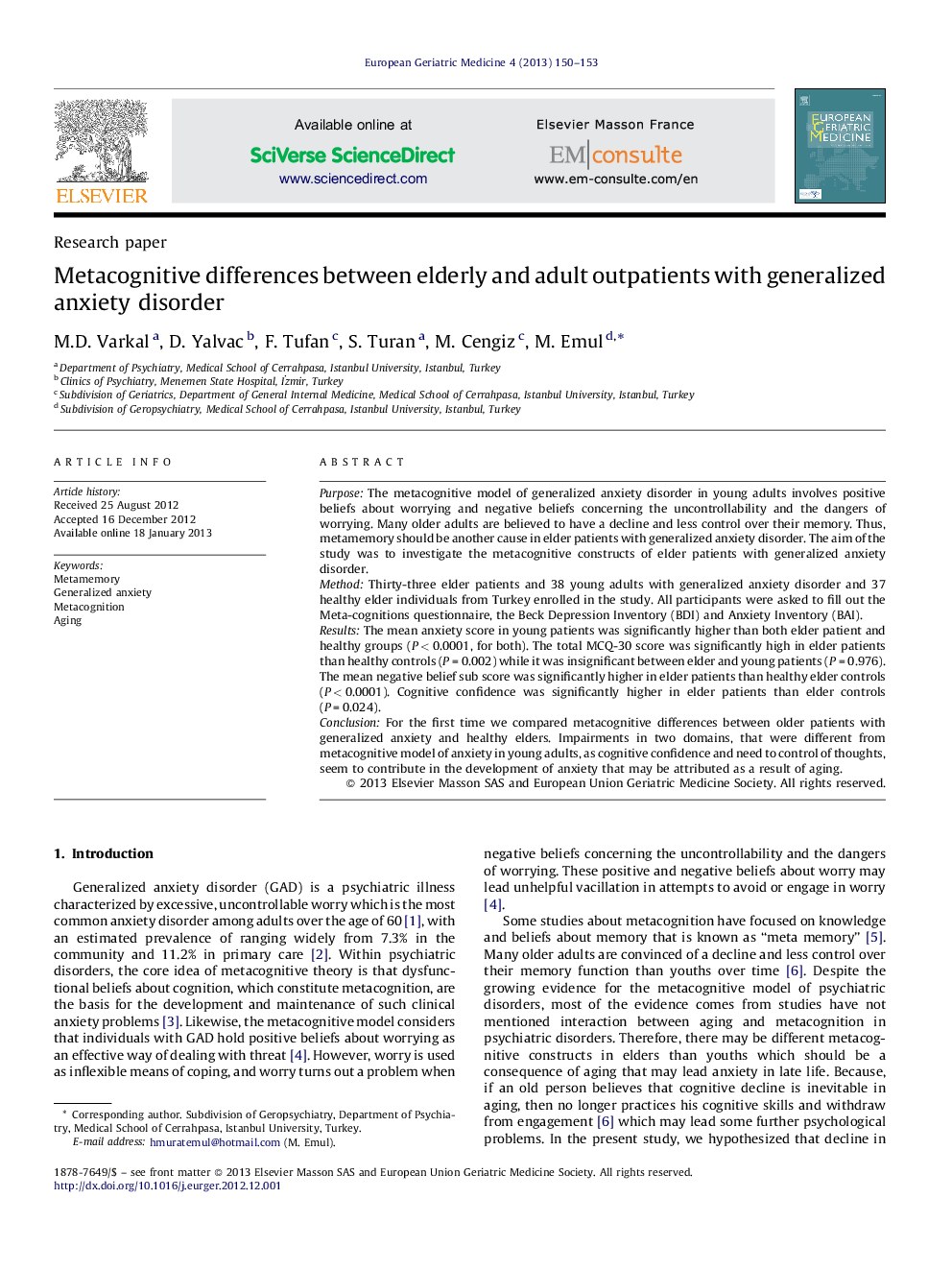| کد مقاله | کد نشریه | سال انتشار | مقاله انگلیسی | نسخه تمام متن |
|---|---|---|---|---|
| 3323983 | 1211950 | 2013 | 4 صفحه PDF | دانلود رایگان |

PurposeThe metacognitive model of generalized anxiety disorder in young adults involves positive beliefs about worrying and negative beliefs concerning the uncontrollability and the dangers of worrying. Many older adults are believed to have a decline and less control over their memory. Thus, metamemory should be another cause in elder patients with generalized anxiety disorder. The aim of the study was to investigate the metacognitive constructs of elder patients with generalized anxiety disorder.MethodThirty-three elder patients and 38 young adults with generalized anxiety disorder and 37 healthy elder individuals from Turkey enrolled in the study. All participants were asked to fill out the Meta-cognitions questionnaire, the Beck Depression Inventory (BDI) and Anxiety Inventory (BAI).ResultsThe mean anxiety score in young patients was significantly higher than both elder patient and healthy groups (P < 0.0001, for both). The total MCQ-30 score was significantly high in elder patients than healthy controls (P = 0.002) while it was insignificant between elder and young patients (P = 0.976). The mean negative belief sub score was significantly higher in elder patients than healthy elder controls (P < 0.0001). Cognitive confidence was significantly higher in elder patients than elder controls (P = 0.024).ConclusionFor the first time we compared metacognitive differences between older patients with generalized anxiety and healthy elders. Impairments in two domains, that were different from metacognitive model of anxiety in young adults, as cognitive confidence and need to control of thoughts, seem to contribute in the development of anxiety that may be attributed as a result of aging.
Journal: European Geriatric Medicine - Volume 4, Issue 3, June 2013, Pages 150–153